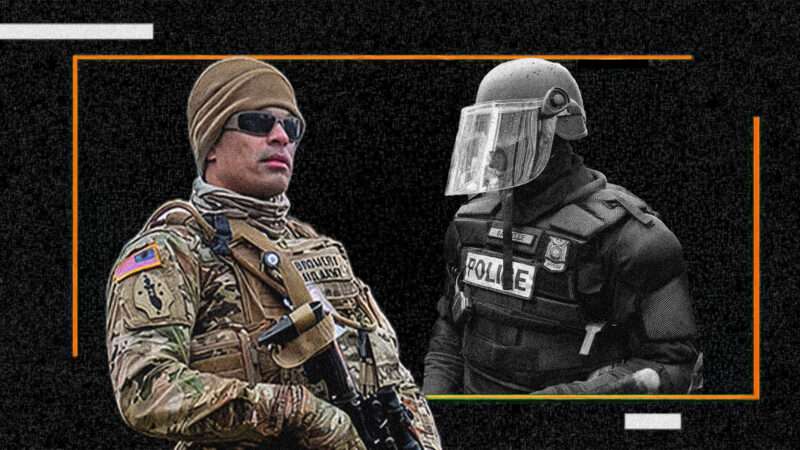
The Pentagon is directing every state and U.S. territory to create "quick reaction forces" within their National Guards, which will be trained to respond to civil disturbances and emergencies, according to a recently leaked memo obtained by The Guardian.
The memo instructs the National Guard Bureau to train these forces in riot control tactics, rapid deployment procedures, and the use of nonlethal weapons. The federalized forces will complement the National Guard Reaction Forces, which have existed for decades to provide emergency relief, reports The Washington Post.
Most states and territories (excluding Washington, D.C.) will supply 500 National Guard members. These units are expected to fully mobilize within 24 hours of activation, with an initial contingent of roughly 200 troops that will be pulled from the guard's unit that specializes in chemical and nuclear disaster response, ready by New Year's Day. By April, the new quick reaction force will reach 23,500 soldiers strong, according to the Post.
These new forces could signal the Trump administration's readiness to expand federal control over local policing, with one anonymous Pentagon official telling the Post that the administration is "revising plans for the employment of [National Guard Reaction Forces] to guarantee their ability to assist federal, state and local law enforcement in quelling civil disturbances."
Critics see the move as establishing a permanent, federally coordinated crowd-control infrastructure. Janessa Goldbeck, a Marine veteran and CEO of Vet Voice Foundation, told The Guardian that the memo represents "an attempt by the president to normalize a national, militarized police force."
It's unclear whether the new order—or any future deployments under it—would pass legal muster. Federal law generally prohibits the use of federal troops in civilian law enforcement, while the Insurrection Act allows exceptions only under narrow circumstances.
The Trump administration's prior efforts to federalize National Guard units for use in cities such as Portland, Oregon, and Chicago have already faced legal challenges and pushback from state officials. In Portland, state and local officials won a temporary restraining order blocking the activation of federal troops, though this was later overturned by an appellate court. On Wednesday, a federal trial to determine the legality of Trump's guard deployment began. In Chicago, a federal appeals panel said the administration's justification for deployment did not meet the threshold of a rebellion or danger of a rebellion required under federal law, writing that "political opposition is not rebellion," the Chicago Sun Times reports. These rulings suggest that any future use of the new "quick reaction" units for civilian crowd control could invite comparable constitutional scrutiny.
States are expected to submit compliance reports to the National Guard Bureau by March. It remains unclear if pending legal challenges against the Trump administration will allow this plan to be realized. However, one thing is clear: The administration's federalization of law enforcement doesn't seem to be going anywhere.
The post Trump's National Guard Plan Edges the U.S. Closer to a Permanent Federal Police Force appeared first on Reason.com.







